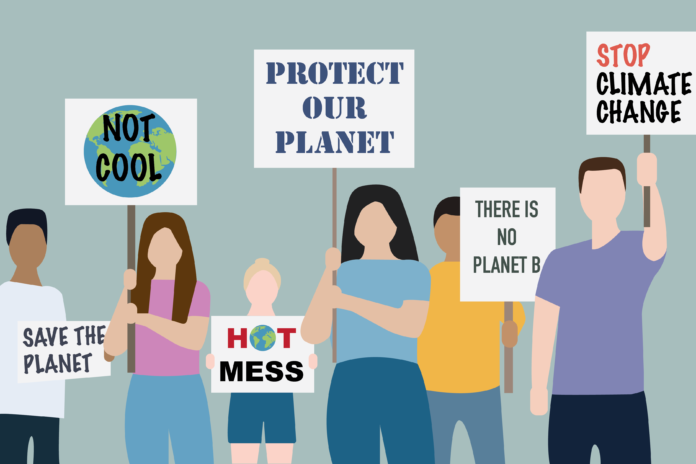Environmental Club, Sunrise Davis continue activist work digitally
Whether it be the Women’s March or a Climate Strike, most activism is characterized by people taking to the streets, marching or gathering with cleverly-worded signs, finding strength in numbers. Although COVID-19 prevents this kind of physical protest, the Environmental Club at UC Davis and Sunrise Davis, the local hub of the national Sunrise movement, have found new ways to continue their work for climate justice and environmentalism.
Activism at home
The Environmental Club has held Zoom meetings and workshops to allow UC Davis students the opportunity to get involved. According to third-year plant sciences major and club treasurer Nathalie Gomez, even if students do not attend the club’s meeting, there are still many ways to promote sustainability.
“Reducing your energy use, composting, staying informed and taking political action, thrifting and eating less meat are a few ways to start,” Gomez said. “[Take] this time to reflect on some changes you plan on implementing in your everyday life.”
Sunrise Davis has also had to find new ways of organizing, hosting their own online workshops relating to climate justice and the Green New Deal in addition to joint workshops with groups such as the COLA movement.
“We did some educational workshops on how to facilitate meetings […] and lots of other educational tools for people who want to key in to the climate movement and also develop their own skills,” said fourth-year environmental science and management major Ben Claire, co-coordinator of Sunrise Davis.
Despite the challenges of online meetings, according to Claire the group has seen an increase in participants, as students have more flexible schedules in quarantine.
“I feel like people are more drawn to in-person workshops,” he said. “However, one of the advantages of quarantine is that people don’t have normal schedules to attend to. In this time when everything is kind of slowed down, I think people have the time to actually join in and get involved.”
The current climate
Shelter-in-place orders have caused a significant decrease in fuel emissions, as many no longer need to travel to and from work or for any nonessential reasons. Although this trend is encouraging for climate activists, in Claire’s words, much more is needed to effectively combat climate change.
“It would take a massive cultural shift,” he said. “But it’s really hard to put pressure on politicians and make them change when we’re all in quarantine and can’t get out and talk to them. Finding new ways to organize is the way to go in order to make that happen.”
Claire said he hopes politicians will view this difficult period as he does: as a chance to reorient and refocus priorities within the economy.
“The slowing of the U.S. economy as a result of the pandemic kind of shines a light on the hyperproductive aspect of the U.S. economy and how we don’t need to be polluting in such magnanimous amounts in order to survive,” Claire said. “We’re in an essential point in history where we absolutely have the opportunity to redirect our economy in a manner that protects against climate change.”
Looking forward
For Gomez, environmental activism not only takes the form of large-scale participation in strikes or marches but also conscious decision-making.
“As individuals the choices we make everyday matters, so we have to think about ways to lower our carbon footprint,” Gomez said.
Once shelter-in-place orders are lifted, she hopes that everyone will continue thinking about their environmental impact.
“I think once everything resumes we should reflect on how much we have accomplished over the years as a community and what we need to improve on to meet our goals and continue a healthy environment,” Gomez said. “We should all remain optimistic for our environment as we continue striving for a sustainable home.”
Written by: Sophie Dewees — features@theaggie.org










